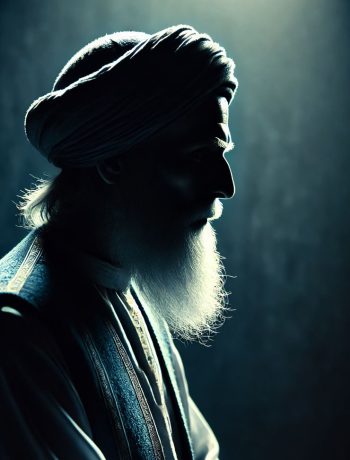
Ibn Kathir (رحمه الله)
Historian, Qur'anic CommentatorDate of Birth and Death
- Born: 1301 CE (701 AH) in Busra, Syria
- Died: 1373 CE (774 AH) in Damascus, Syria
Origin and Early Life
Ismail ibn Umar ibn Kathir, commonly known as Ibn Kathir, was born in Busra, a small town near Damascus in Syria. He was raised in a family known for its piety and scholarship. After the death of his father, he moved to Damascus with his brother, where he pursued his education and developed a keen interest in Islamic sciences from a young age.
Education and Teachers
Ibn Kathir received a comprehensive education in Damascus, studying under some of the most prominent scholars of his time. His notable teachers included:
- Ibn Taymiyyah: The influential Islamic scholar and theologian, under whom Ibn Kathir studied Aqeedah (Islamic creed) and Fiqh (Islamic jurisprudence).
- Al-Mizzi: A renowned Hadith scholar who greatly influenced Ibn Kathir’s interest in Hadith.
- Ibn al-Qayyim: A famous student of Ibn Taymiyyah and an accomplished scholar in his own right.
- Ibn al-Firkah: A prominent Shafi’i jurist from whom he learned Fiqh.
His education was marked by a deep engagement with the Quran, Hadith, Fiqh, and Islamic history.
Expertise and Works
Ibn Kathir was a prolific scholar known for his expertise in Tafsir (Quranic exegesis), Hadith, and Islamic history. His most significant works include:
- “Tafsir al-Quran al-Azim”: Commonly known as “Tafsir Ibn Kathir,” it is one of the most widely read and respected commentaries on the Quran, known for its comprehensive approach and reliance on authentic Hadith.
- “Al-Bidaya wa’l-Nihaya” (The Beginning and the End): A monumental work on Islamic history, covering events from the creation of the world to the author’s contemporary period.
- “Al-Sira al-Nabawiyya”: A detailed biography of the Prophet Muhammad (peace be upon him), providing insights into his life and mission.
- “Jami’ al-Masanid”: A collection of Hadith.
Famous For
Ibn Kathir is most famous for his Tafsir, “Tafsir Ibn Kathir,” which remains a cornerstone in the study of Quranic exegesis. His method of interpreting the Quran through the Quran itself, Hadith, and the sayings of the Sahaba (companions of the Prophet) and Tabi’un (successors of the companions) set a high standard for later scholars. Additionally, his historical works, particularly “Al-Bidaya wa’l-Nihaya,” are invaluable resources for Islamic history.
Character and Piety
Ibn Kathir was known for his piety, integrity, and dedication to scholarship. He lived a life of simplicity and was deeply committed to his religious duties. His contemporaries and students praised him for his humility, ethical conduct, and relentless pursuit of knowledge. His deep respect for his teachers, especially Ibn Taymiyyah, influenced his theological and jurisprudential views.
Books and Teachings
The teachings of Ibn Kathir continue to be influential in the Muslim world. His works, especially his Tafsir and historical writings, are studied in Islamic universities and seminaries globally. His balanced and methodical approach to interpreting the Quran and his thorough documentation of Islamic history have made lasting contributions to Islamic scholarship.
Ibn Kathir’s legacy as a scholar, historian, and exegete remains profound. His contributions to Islamic exegesis, history, and Hadith literature have left an indelible mark on the Muslim intellectual tradition. His works continue to inspire and guide students and scholars in their quest for understanding the Quran and Islamic history.
© Copyright 2025, All Rights Reserved
